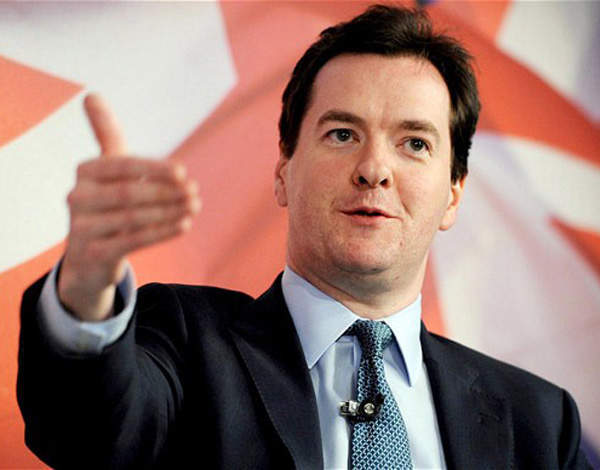

Berwin Leighton Paisner legal firm and Coutts private bank give their expert views ahead of George Osborne’s upcoming Autumn Statement.
BERWIN LEIGHTON PAISNER
On 5 December Chancellor George Osborne will deliver his Autumn Statement 2013. As the British economy starts to make its first steps towards recovery, the debate continues on what growth measures should be included in an Autumn Statement. According to experts at international law firm Berwin Leighton Paisner, the recipe is simple – stop tinkering with the tax system.
John Overs, Partner and Head of the Corporate Tax team at Berwin Leighton Paisner, explains:
‘This Government promised to make stability and predictability in the tax system one of its main goals when it first came to power. However, this is not what we have seen in recent months with multiple anti-avoidance rules piled up on top of the General Anti-Abuse Rule, originally hailed as the catch-all answer to piecemeal tax legislation.
‘Another good example of shifting goalposts is property taxation. Rumours are already circulating about changes to capital gains tax coming up in the Autumn Statement, less than a year after the new regime for taxation of high-value residential property came into effect.’
Read more on Capital Gains Tax from Spear’s
Damian Bloom, a partner in the private client team at Berwin Leighton Paisner, says:
‘We hope – perhaps in vain – that the Government does not allow tax policy to be dictated by media pressure and political agendas. The UK property market and tax regime should not become a pre-election football.’
‘Media headlines increasingly backed up by ministerial quotes suggest capital gains tax on non-UK resident owners of UK real estate may be on the agenda. However, we believe the policy could be misguided and badly timed.’
‘The UK property market is still dealing with the consequences of significant changes introduced in April 2013. Another attack so soon afterwards will be damaging to our already-impaired international reputation for stability. A home in the UK is often the first step taken by wealthy foreign individuals considering making greater investment into the UK. British entrepreneurs and businesses will be the losers if wealthy foreign investors take their money elsewhere.’
Michael Wistow, Partner and Head of Tax, concludes:
‘The result is a situation where businesses simply do not know where they stand but in order to expand and invest, entrepreneurs and businesses need clear rules they can rely on. One of the cornerstones of a healthy economy is clarity and stability in tax matters, but that is precisely what has been lacking for months now. The situation is exacerbated by the fact that fundamental changes are being rushed through without proper consultation.’
‘Business confidence is starting to return but it should be bolstered by an Autumn Statement that provides reassurance and a strong message of stability and not hasty tax policy revisions made up ‘on the hoof’ without a proper assessment of the consequences’.
COUTTS
Autumn Statement 2013 Predictions
Autumn Statements were introduced to provide an update on economic growth and finance, but have instead often been used to announce proposed tax changes. This trend is likely to continue and we expect a number of proposals on 5 December.
Cap on ISAs/tax-free lump sums
The Chancellor might cap ISA ‘pots’ and / or restrict the tax-free amount that can be withdrawn from pension schemes, although we believe it would be misguided to introduce such measures before the public start to feel the benefits of economic recovery. Such retrospective, or at least retroactive, measures could also damage public confidence in both the UK’s tax system and savings mechanisms.
Married couples tax allowance
We expect more details on David Cameron’s plan to introduce a tax break for married couples in 2015. However, given the value of the proposed tax break and the number of individuals who would be eligible, this historic pledge might ultimately have little impact on people’s living standards. New measures aimed at the low paid should arguably apply across the board and better reflect modern society.
Another delay on IHT tax-free band
The inheritance tax nil band rate is to sit at £325,000 despite George Osborne proposing over six years ago to raise it to £1 million. The impact of the IHT tax-free allowance freeze, while understandable in the context of the post-2008 economic landscape, is being compounded by increasing property prices to bring ever more people in to the IHT net. Passing on wealth early, to grandchildren perhaps, can be a sensible component of an IHT planning strategy but great care is needed to ensure sufficient monies are kept particularly bearing in mind increased life expectancy and spiralling old age care costs.
Top-end property
High-value UK residential property, particularly where overseas-owned, is likely to be targeted, although the tax system might constrain the available mechanisms. Raising top-end stamp duty thresholds could prove more effective than imposing a capital gains tax charge on non-residents, while a progressive stamp duty system could have an even wider impact.
Anti-avoidance
The distinction between ‘reasonable’ tax planning and unacceptable tax avoidance is often blurred, although the Autumn Statement is likely to announce further measures to close specific loopholes that are being abused. The General Anti-Abuse Rule came into effect earlier this year but we could see further targeted measures to tackle artificial and abusive avoidance schemes.
Read more on tax and trust from Spear’s






